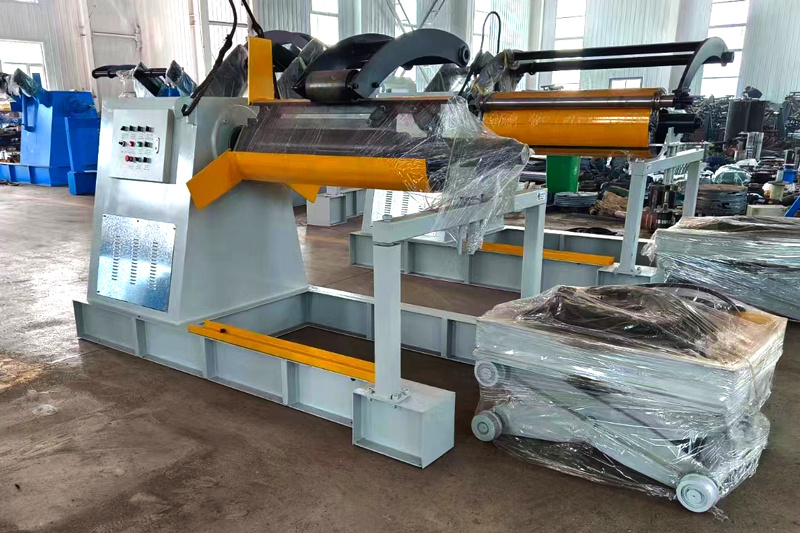Understanding Tile Machines: The Backbone of Modern Tile Production
Jun 07,2025

In the realm of manufacturing and processing machinery, tile machines play a pivotal role in the production of tiles for various applications, including flooring, walls, and decorative purposes. These sophisticated machines are designed to automate and streamline the production process, ensuring consistency and high quality in the final product.
Tile machines function through a series of processes that include mixing raw materials, shaping the tiles, and applying finishes. Typically, the production of tiles begins with a mix of clay, minerals, and other additives, which are combined in specific proportions. The mixing stage is crucial as it determines the strength, durability, and aesthetic quality of the tiles. Advanced tile machines are equipped with automated mixing systems that ensure uniform consistency and reduce human error.
Once the mixture is prepared, the tile machine shapes the mass into individual tiles through a process known as pressing. This can be done using hydraulic or mechanical presses that exert strong pressure to mold the tiles into the desired dimensions. The precision of the pressing process is vital, as it affects the final appearance and structural integrity of the tiles. Many modern tile machines come with adjustable settings that allow for varying tile thickness and shapes, catering to diverse market demands.
After shaping, the tiles typically undergo a drying process before being fired in a kiln. This step is essential, as it solidifies the tiles and enhances their strength. Tile machines often integrate this step into their workflow, utilizing advanced drying technologies that optimize the drying time while maintaining energy efficiency.
In addition to functionality, tile machines also prioritize energy efficiency and sustainability. With the growing emphasis on environmental responsibility, many manufacturers are investing in machines that minimize waste and energy consumption during production. For instance, some machines recycle excess materials back into the manufacturing process, reducing the need for raw materials and lowering production costs.
Moreover, with advancements in technology, today's tile machines may also include programmable features that allow for easy adjustments and monitoring of the production process. This not only boosts productivity but also enhances the ability to maintain quality control throughout the manufacturing cycle.
In conclusion, tile machines are essential components in the manufacturing landscape, enabling producers to create high-quality tiles efficiently and sustainably. Understanding the mechanisms and advantages of these machines can significantly enhance production capabilities and ensure that manufacturers remain competitive in a fast-evolving market. As the demand for innovative and aesthetically pleasing tiles continues to rise, the role of tile machines becomes increasingly significant in shaping the future of the industry.
Tile machines function through a series of processes that include mixing raw materials, shaping the tiles, and applying finishes. Typically, the production of tiles begins with a mix of clay, minerals, and other additives, which are combined in specific proportions. The mixing stage is crucial as it determines the strength, durability, and aesthetic quality of the tiles. Advanced tile machines are equipped with automated mixing systems that ensure uniform consistency and reduce human error.
Once the mixture is prepared, the tile machine shapes the mass into individual tiles through a process known as pressing. This can be done using hydraulic or mechanical presses that exert strong pressure to mold the tiles into the desired dimensions. The precision of the pressing process is vital, as it affects the final appearance and structural integrity of the tiles. Many modern tile machines come with adjustable settings that allow for varying tile thickness and shapes, catering to diverse market demands.
After shaping, the tiles typically undergo a drying process before being fired in a kiln. This step is essential, as it solidifies the tiles and enhances their strength. Tile machines often integrate this step into their workflow, utilizing advanced drying technologies that optimize the drying time while maintaining energy efficiency.
In addition to functionality, tile machines also prioritize energy efficiency and sustainability. With the growing emphasis on environmental responsibility, many manufacturers are investing in machines that minimize waste and energy consumption during production. For instance, some machines recycle excess materials back into the manufacturing process, reducing the need for raw materials and lowering production costs.
Moreover, with advancements in technology, today's tile machines may also include programmable features that allow for easy adjustments and monitoring of the production process. This not only boosts productivity but also enhances the ability to maintain quality control throughout the manufacturing cycle.
In conclusion, tile machines are essential components in the manufacturing landscape, enabling producers to create high-quality tiles efficiently and sustainably. Understanding the mechanisms and advantages of these machines can significantly enhance production capabilities and ensure that manufacturers remain competitive in a fast-evolving market. As the demand for innovative and aesthetically pleasing tiles continues to rise, the role of tile machines becomes increasingly significant in shaping the future of the industry.
TAG:
Contact Us
E-mail :
chiyuan@chiyuanmachine.com
Phone/Wechat:
+86-15100871888
Address:
Botou Economic Development Zone, Cangzhou City, Hebei Province, China







